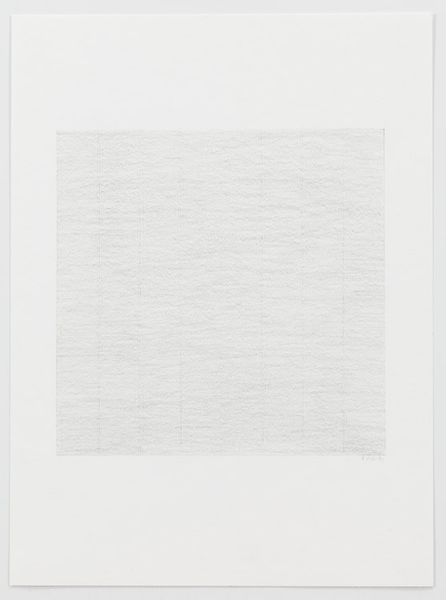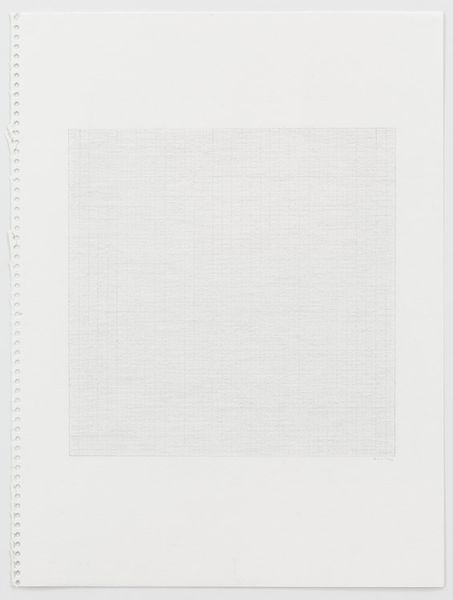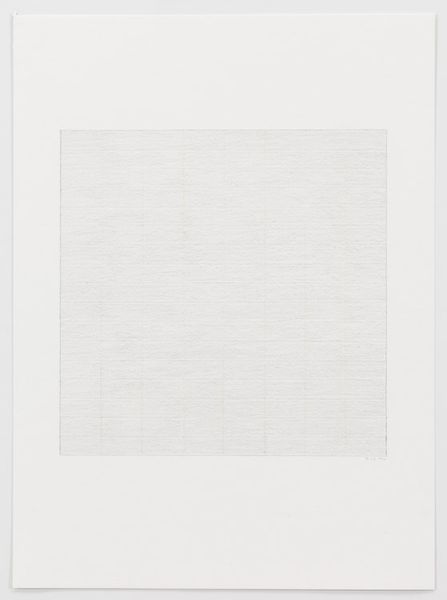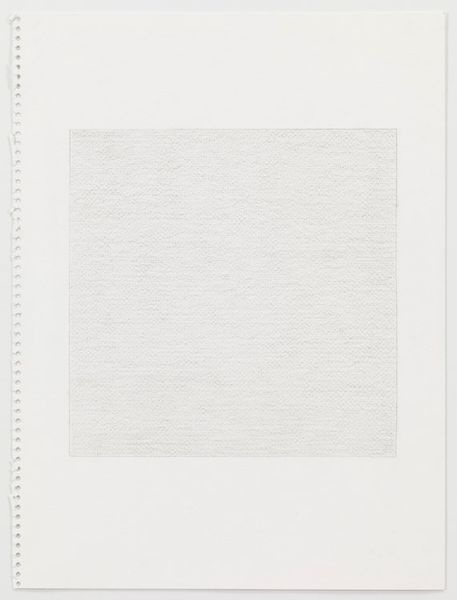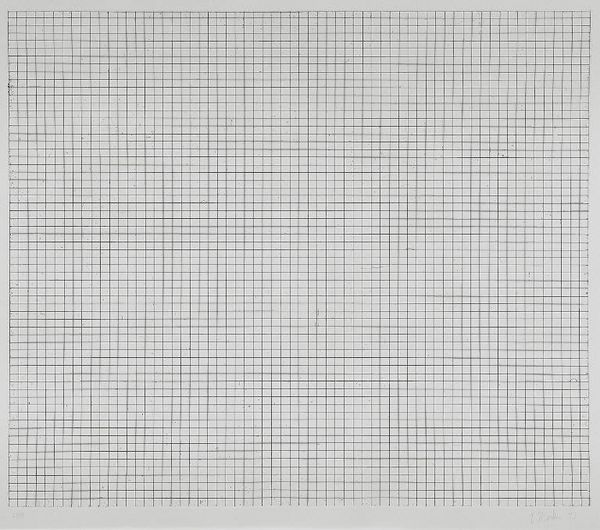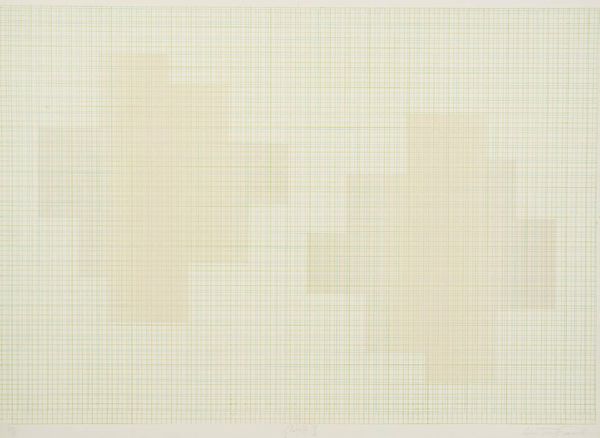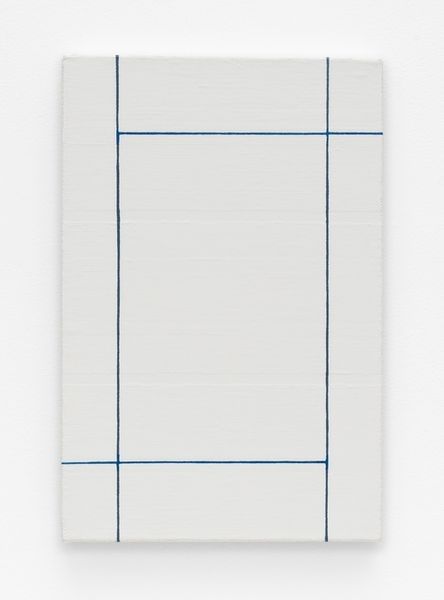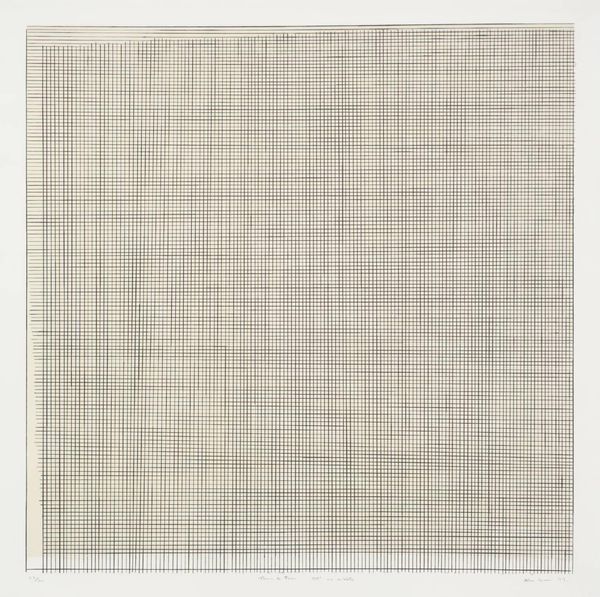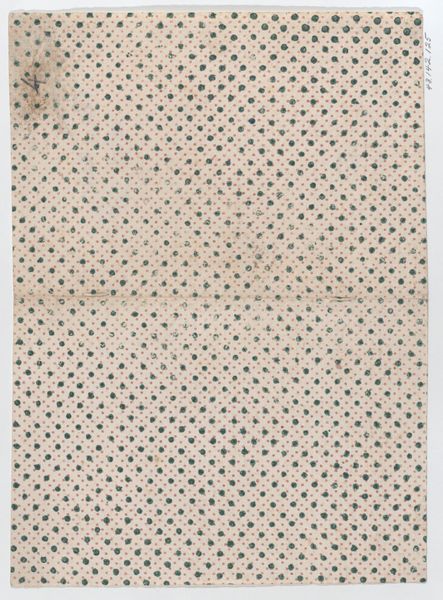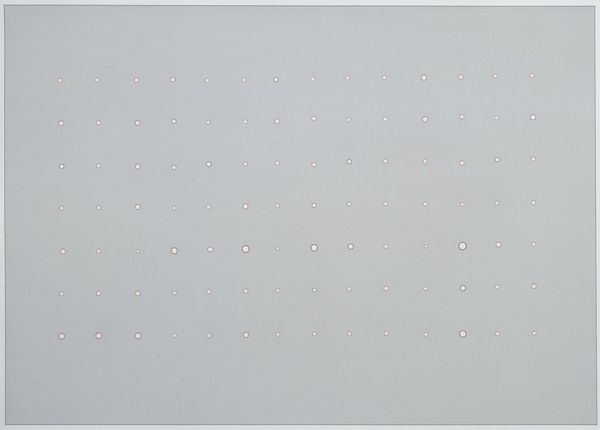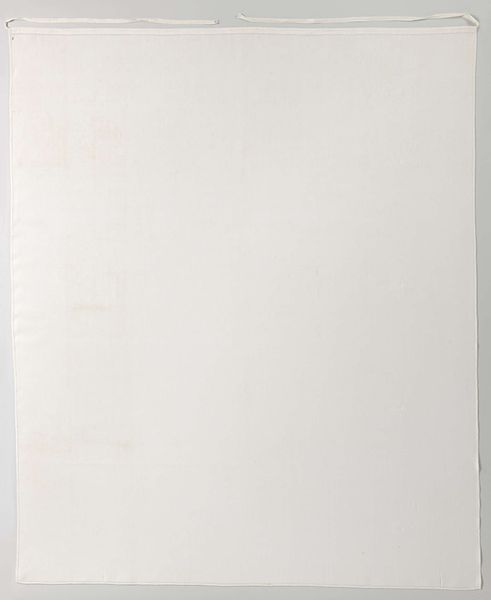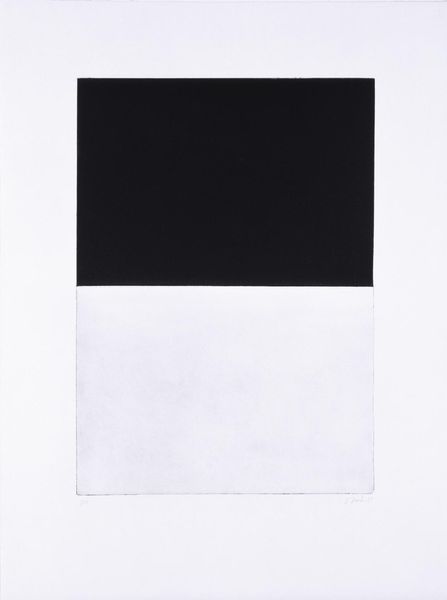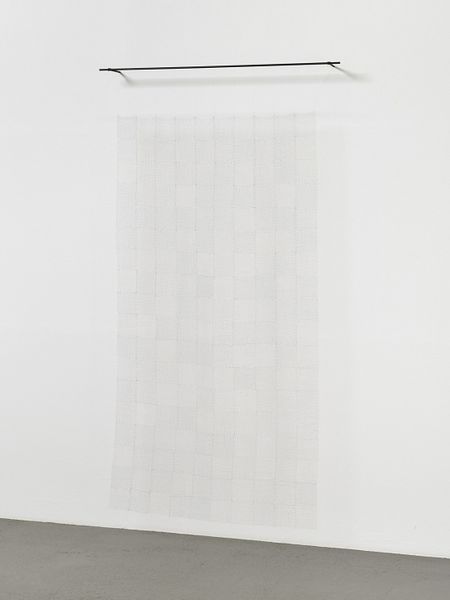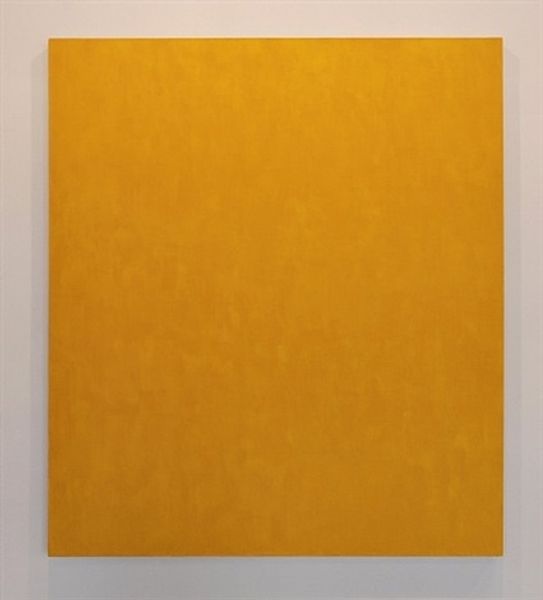
#
natural tone
#
natural substance
#
white dominant colour
#
op art
#
natural cool tone
#
repetition of white
#
rectangle
#
minimal pattern
#
organic pattern
#
simple pattern
#
print out
Copyright: Rudolf de Crignis,Fair Use
Editor: We’re looking at Rudolf de Crignis' "Painting #92138" from 1992. It appears to be a grid, painstakingly rendered, in very subtle tones. I find it both calming and…almost unsettling, with its faint imperfections. How do you interpret this work? Curator: Well, placed in its historical context, the early 90s, this piece speaks volumes. Consider the sociopolitical landscape then. We see the tail end of the Cold War and a rise in institutional critique within art. This work’s subtle disruption of the grid – that symbol of order and control – can be seen as a quiet rebellion against those structures. Editor: So, you're suggesting the imperfections are deliberate and meaningful? Curator: Precisely! It invites us to question what constitutes "order" and "perfection," especially within artistic institutions and broader societal expectations. Is the lack of vibrant color also a comment on the art world at that time? What do you think the impact of seeing it in a gallery setting might be? Editor: Interesting point. Perhaps its subtlety demands a quiet, contemplative space, pushing against the spectacle often promoted by galleries. Its power relies on its understated nature, becoming a critique through quiet subversion. Curator: Exactly! It's about the politics of visibility and how seemingly neutral spaces are, in fact, never truly neutral. The choice to name it just “Painting #92138” instead of something more descriptive emphasizes that the work, like people, often is reduced to a mere number. Editor: That gives me a lot to consider. I initially just saw an aesthetically pleasing grid, but now it feels much more charged. Thank you for sharing the depth of it! Curator: My pleasure! It is through this exploration of social context that such a piece truly starts to communicate.
Comments
No comments
Be the first to comment and join the conversation on the ultimate creative platform.
